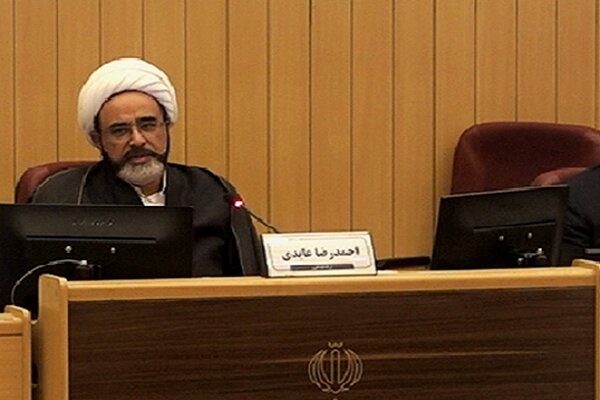The preventive role of the judiciary in countering corruption


According to Mehr News Agency, Hojjatoleslam Ahmad Reza Abedi, Head of the Administrative Justice Court, at the agenda of the General Board of Administrative Justice, on the anniversary of the martyrdom of Imam Mohammad Bagher (As)He considered the Prophet one of the brightest scientific and spiritual figures in the history of Islam and emphasized the necessity of knowing and explaining the different dimensions of his personality.
The head of the Administrative Justice Court, commemorating the memory of the great founder of the Islamic Republic of Iran, Imam Khomeini, the anniversary of his birth was an opportunity to re -read the ideas and aspirations of that supreme jurisprudence and said: Imam Khomeini (RA) had three basic beliefs that the Islamic Republic could still have a guide to the Islamic Republic. “Theism, self -esteem and popularity”.
In explaining the first axis, the theism, he stated: Imam (as) was regarded as a principle of belief, but as the backbone of the political and social system in Islamic thought. Their deep belief in the divine power was the support that brought the path of the Islamic Revolution with strength and firmness.
Hojjat al -Islam and Muslim Abedi pointed to the principle of self -esteem in Imam Khomeini's thought: Imam Rahel always emphasized the empowerment of the nation and officials, and his famous phrase who said “I determine the state” was a sign of faith in the capacity.
He also cited the third axis, the beliefs of Imam Khomeini, and added: Imam's belief in the unparalleled role of the people in determining his destiny was crystallized in his historical sentence, saying: “I determine the support of the people of the government.” This view was derived from the depth of belief in human dignity and confidence in collective wisdom.
In another part of his remarks, the head of the Administrative Justice Court considered the expansion of justice as one of the most important demands of Imam Khomeini and said: “It is our duty today to further strive to achieve justice in various fields, including in the processes of hearing and dealing with the demands of the people.”
He emphasized the need to preserve people's dignity in the judicial processes, pointing out that a mechanism should be designed so that people can achieve their rights in the shortest possible time without obstacles and bureaucracy. Accelerating the proceedings, transparency of procedures, and the elimination of unnecessary processes are directly effective in maintaining the dignity and dignity of the client.
Hojjatoleslam and Muslim Abedi went on to refer to the preventive role of the judiciary in countering corruption and rent, saying that the fight against corruption is not only a legal action, but a necessity to protect public trust and strengthen social capital. The creation and consolidation of transparent judicial procedures are also important tools along this path.
In the end, he emphasized: The Court of Administrative Justice, as one of the important pillars of the realization of administrative justice in the country, is obliged to take more effective steps in the path of Imam Rahel's aspirations and the supreme leader's manuscripts.
(Tagstotranslate) Administrative Justice Court (T) Head of the State Administrative Justice Court (T) Imam Khomeini (T)
Source:mehrnews